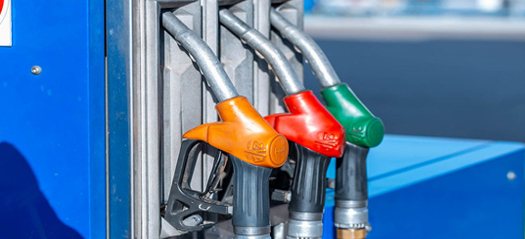
(Photo credit: Marco Verch/Flickr Commons)
New habits being formed during the Coronavirus quarantine may be good for slowing global climate change. Now that businesses see how many of their employees can work effectively from home, there may be a call to stick to the practice, enabling commutes to and from work, as well as office leases, to become unnecessary.
This means fewer cars on the road and subsequently less air pollution, which has already been observed around the world. On the other hand, single-use plastic usage is increasing due to its perceived hygienic benefit. The oil industry may have to re-evaluate its long-term profitability projections due to this global shift in lifestyle choices.
The future of oil
For the first time in history, the price for a barrel of oil briefly went into the negatives, meaning oil producers had to pay to have the crude taken off of their hands.
Though nations are slowly opening up and letting some employees return to work, it is clear for many industries, things will never be the same. There is a re-evaluation of the importance of face-to-face meetings now that online meetings are proving just as effective. Companies may de-prioritize employee travel and even go into the office at all.
Business travel makes up a large proportion of commercial flight tickets, and the airline industry’s recent scale back means that thousands of gas-guzzling aeroplanes are currently out of commission, therefore airline companies are purchasing only a fraction of the fuel. Though this is an abrupt awakening for the oil industry, the death of big oil was a long time coming.
Even before the virus, many transportation fleets were being converted to electric vehicles. The Ceres’ Corporate Electric Vehicle Alliance encourages companies with large vehicle fleets to “leverage their collective demand for low- and zero-emission vehicles to drive changes throughout the global auto market.” Members include Amazon, DHL, Siemens, and Ikea North America.
Online retail sales are skyrocketing while people remain fearful to go out in public. Many delivery vehicles are currently electric, and companies promote the use of such vehicles because many consumers are concerned with the issue of climate change, not to mention the cost savings on fuel and maintenance.
While business travel may take a permanent hit, which would be a good thing for global carbon emissions, public transportation usage could decrease. People’s fear of being near strangers may last long after lockdown orders are lifted, prompting people to opt for using personal vehicles instead of trains and buses.
What about plastic
In recent years, there has been a strong push to phase out single-use plastics, which are made primarily from oil and used largely in packaging and synthetic fabrics. Due to the pandemic, some US states and EU cities that had committed to stopping the use of single-use plastics are now rolling back those commitments for the sake of hygiene.
According to the LA Times, “More deliveries means more demand for bubble wrap and other plastic packaging, while safety-conscious consumers are more likely to demand plastic-wrapped produce.” Even though the virus has been proven to live longer on plastic than on fabric, some places like New Hampshire is banning grocery store shoppers from bringing their bags to the grocery store, necessitating the use of store-provided plastic (or paper) bags.
According to Time, “European Plastics Converters, recently requested that the European Commission lift all bans on single-use plastic items and delay its EU-wide ban by a year, arguing that “hygienic properties” were the best choice to “safeguard consumers.”
Plastic-based textiles like Polyester, Lycra, and Nylon are still widely used in the fashion industry, and even as many consumers call for more sustainable fabric options, there’s no end in sight for fast fashion. Though the fashion industry is currently suffering like any other, it is unlikely that production or use of oil-based synthetic fibres will be significantly impacted – due to the current low cost of oil, it may even increase.
The oil industry has impacted consumers far beyond the petrol pump. Though it is a more fragile market than previously thought, the widespread use of oil in everyday products means that a significant enough shift to close down the pumps could take decades.
Ellen Dorsey, Executive Director of the Wallace Global Fund, has a forward-thinking approach when it comes to the future of oil, “Responding to this economic crash, investors must re-balance portfolios. Don’t wait for fossil fuels to come back— they won’t —get out now for financial and ethical reasons. Foundations that began divesting more than five years ago have seen consistently better returns than those that did not.”
Some people saw the pandemic coming, but most were not prepared; even more, see climate catastrophe on the horizon – will the fossil fuel industry transition in time, or will it trigger disaster and then scramble to recover from it?
Sarah Sakeena Marshall
Grit Daily Staff Writer & The Muslim News Environmental Columnist